Tokyo Sexwale: Can Mandela's ex-prison mate lead Fifa?
- Published
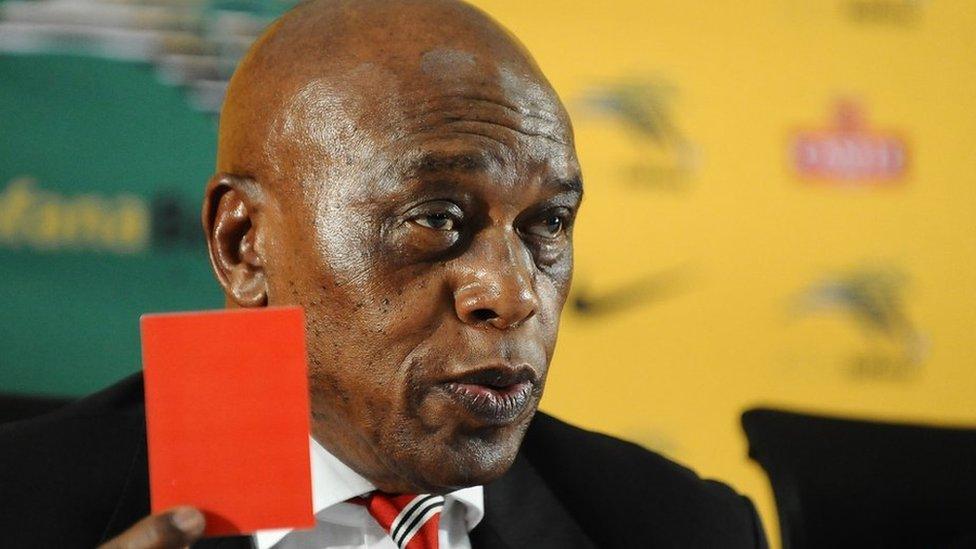
Mosima Gabriel Sexwale, otherwise known as "Tokyo" - a nickname from his days as a young karate enthusiast - is not your quintessential football administrator, despite the fact that the South African is now bidding to become the next president of Fifa.
He is a veteran politician who cut his teeth as an activist in the anti-apartheid movement.
His involvement in the fight against white-minority rule landed him on Robben Island, where he was a political prisoner alongside Nelson Mandela and many others.
After being imprisoned on terrorism charges and conspiracy to overthrow the government in 1976, Mr Sexwale spent 13 years behind bars.
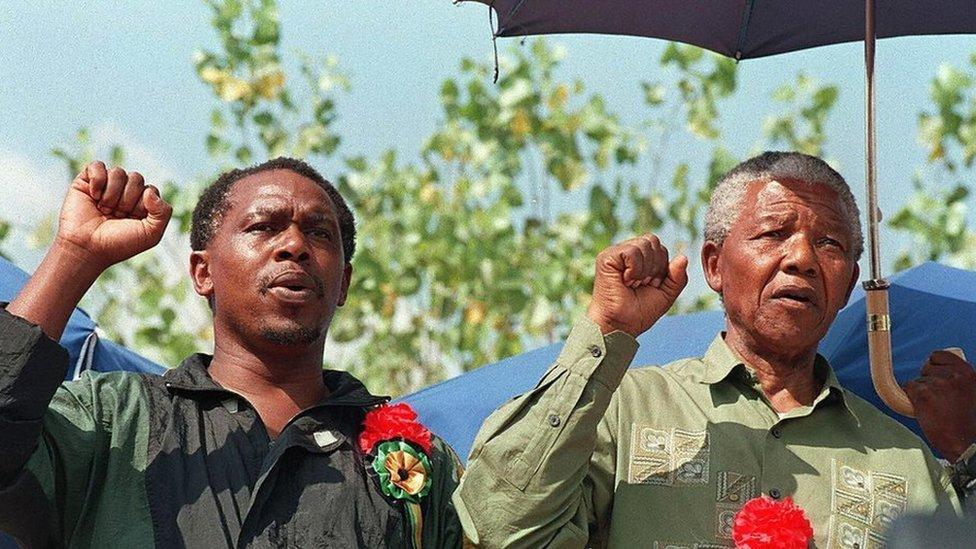
Tokyo Sexwale at a peace rally with Nelson Mandela a month before historic elections in 1994
He has certainly thrown a unique CV into the ring for the presidency of football's world governing body, which is looking for fresh leadership amid the biggest crisis in its history.
But the former political prisoner, whose father once owned a small football club in Soweto, does have a track record of getting things done in the footballing world.
He was a key member of the bidding team which brought the World Cup to Africa for the first time, going on to become one of the chief organisers for South Africa's widely praised hosting of the tournament in 2010.
His close involvement with the tournament bidding process was heavily scrutinised in June, when US prosecutors accused the South African government of paying a $10m (£7m) bribe to secure the right to host the tournament.
The government insists it was a legitimate payment to promote Caribbean football.
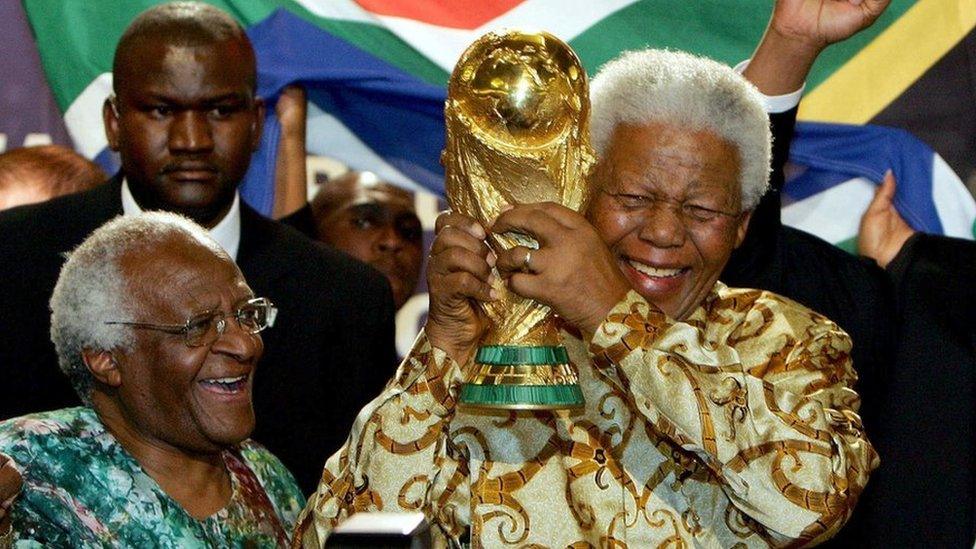
Mandela said he felt like a "young boy of 15" on hearing South Africa had won its World Cup bid
Mr Sexwale, who was not named in the US indictment and has not been accused of any wrongdoing over the bid, told the BBC that the payment was "worrisome".
"Where are the documents, where are the invoices, where are the budgets, where are the projects on the ground?" he said in a BBC interview in June, wondering aloud what exactly the millions had been spent on.
'Red card to racism'
Through his foundation, he is also one of the leaders of a high-profile global campaign initiative, calling for an end to racial discrimination in sport.
"With this initiative we are giving a red card to racism in sport. Not just in football. We are saying don't throw bananas at players and do not make derogatory comments about the Williams sisters," he told me following the campaign's launch in 2014.
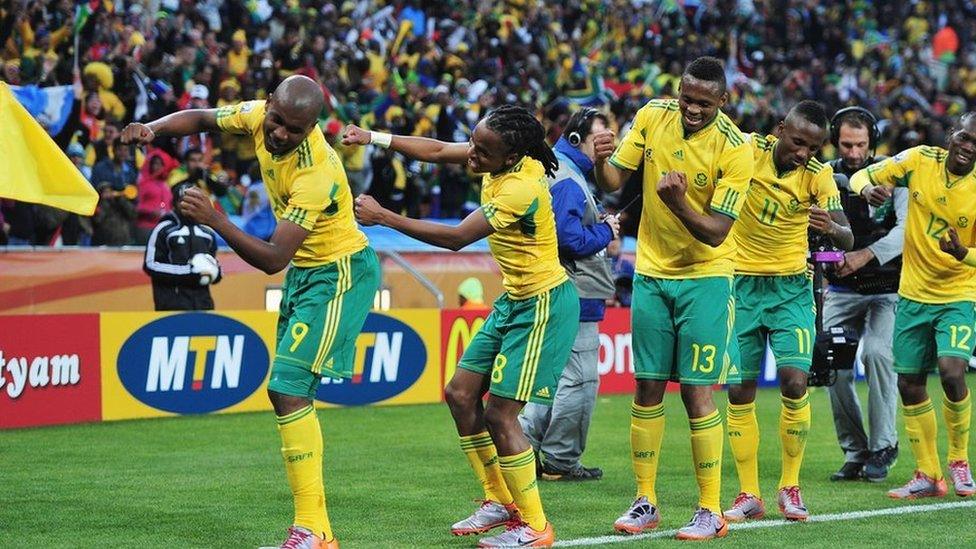
The 2010 World Cup in South Africa was the first to be held on the African continent
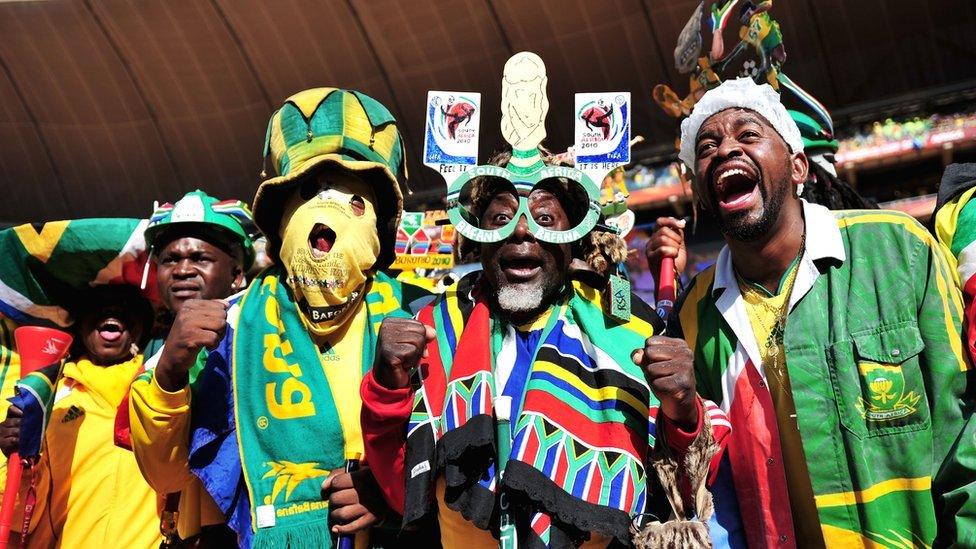
The hosting of tournament was considered a success
The same elections which brought Mr Mandela to power in 1994 saw Mr Sexwale elected as premier of Gauteng, leading a province which contained the country's capital Pretoria and its biggest city, Johannesburg.
Despite presidential ambitions, the highest political office he reached was as minister of human settlements, appointed by President Jacob Zuma in 2009, serving for four years.
Away from politics, the 62-year-old is one of the country's wealthiest businessmen.
Mr Sexwale's fortune, mainly made through the mining sector, was reported at $200m (£130m) in 2014, which would have made him the third richest black man in the country at the time.
The Apprentice: 'You're dismissed'
He has also used his high profile to turn himself into a media personality.
In the South African version of TV reality show The Apprentice, it was not Donald Trump or Alan Sugar telling hapless contestants: "You're fired!"
Instead, it was Mr Sexwale, who put his own spin on the show's catchphrase, using the less brash: "You're dismissed."
But he was widely criticised for being "indecisive" because on the final live broadcast of the show in 2005 he ended up hiring both finalists.
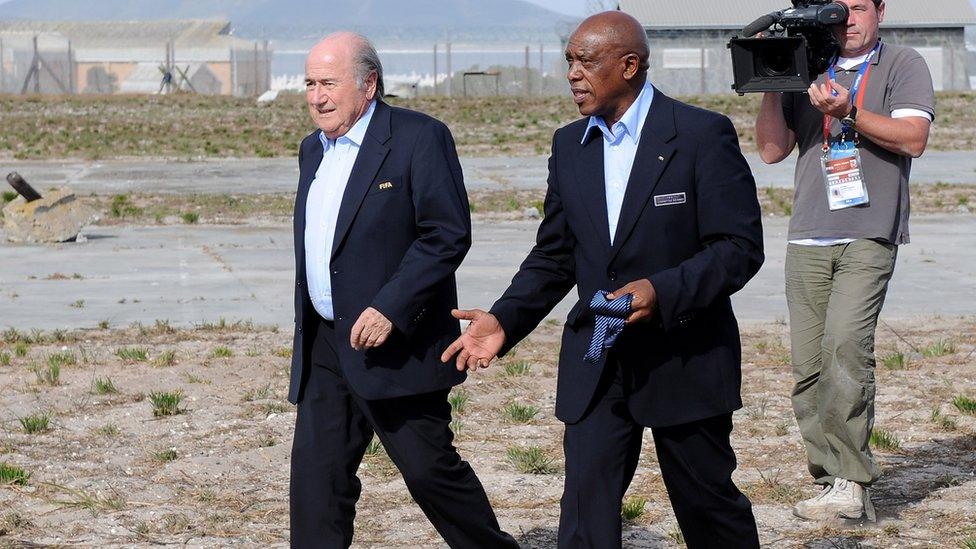
Ahead of the 2010 World Cup, Mr Sexwale showed Sepp Blatter Robben Island's football pitch
Over the weekend, the South African Football Association (Safa) said that it fully supported his bid, for elections due to be held on 26 February next year.
Safa President Danny Jordaan said that Mr Sexwale had all the right qualifications for the job, but cautioned that there was a long campaign ahead.
"I think he has the credentials, and of course he's been on Fifa committees for many years," he said.
But despite the show of support, there are some who believe Mr Jordaan would have been a stronger candidate to become Sepp Blatter's successor, instead of the veteran freedom fighter and politician.
- Attribution
- Published23 February 2016
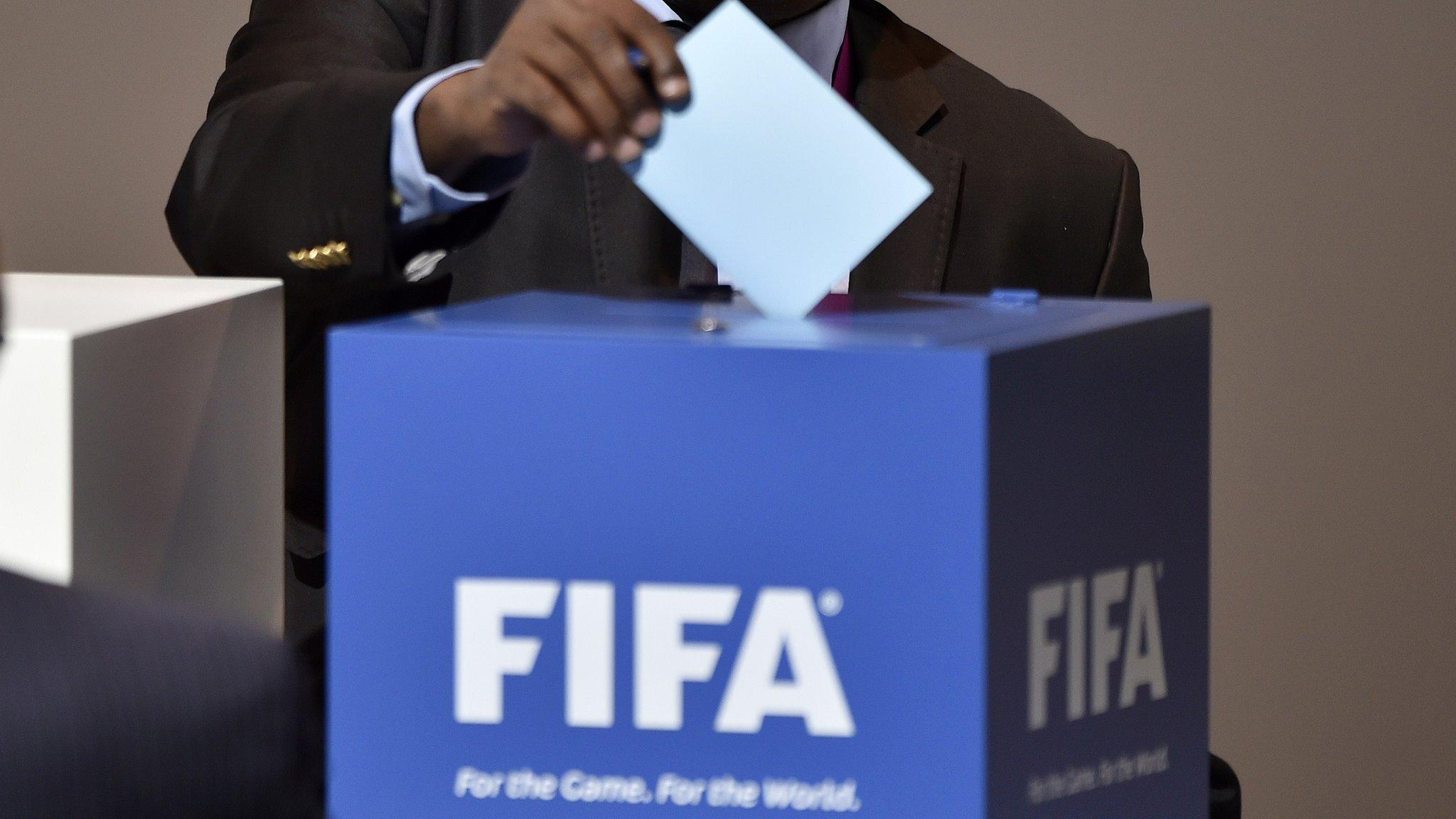
- Published14 June 2015